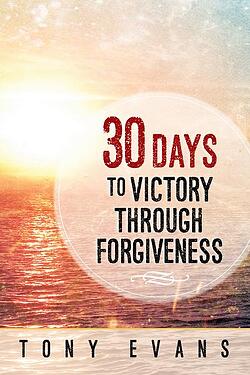
One day while I was driving, another driver ran into my car—and then sped off! It was a minor thing in the big scheme of life, but it was a real challenge to me. Every time I looked at my banged-up car, I felt frustration, helplessness, and loss. I dreaded the inconvenience of getting my car fixed and paying the expense, but eventually I had to.
I hadn’t done anything to deserve the damage, and the other driver was long gone. But if I left my car banged up, I would always be reminded of what happened that day. I had to fix the car in order to put the situation behind me and move on.
This wasn’t about the offender—it was about my ability to live an emotionally healthy life.
In situations like these, if you are unable to forgive, you are the one who is held hostage, not the offender. It has been said that refusing to forgive is like drinking poison and expecting someone else to die from it. But of course, you are only poisoning yourself. The bitterness, regret, and anger churning inside you…
- poison your thoughts
- override your emotions
- distract you from living out your destiny
- jeopardize your relationships
When you forgive someone who hasn’t asked for forgiveness and may not have even repented of their offense, you are offering unilateral forgiveness. You are granting them forgiveness on your own—unilaterally, or without their involvement.
Why would you grant forgiveness to someone who hasn’t asked for it and probably doesn’t deserve it? Here’s the main reason: You do it not to set them free but to set yourself free. You do it so you can keep going. Unilateral forgiveness releases you from something that the other person may never get right.
You cannot change what happened to you, nor can you change the person who did it. You can only change yourself and your response to the offense, so that is where you need to focus.
Friend, your offenders may never admit what they did was wrong, let alone say they are sorry. Facing that fact is key if you are to move on. Granting unilateral forgiveness in those situations will keep you from poisoning yourself with bitterness and resentment.
God has a purpose for your pain. Nothing gets to you that does not first pass through His hand. And if He allows it to pass through His hand, He can use it for a greater good.
Don’t let other people’s offenses or your own pain cloud your view of a brighter tomorrow and your greater purpose.
Adapted from 30 Days to Victory Through Forgiveness by Tony Evans
Dr. Tony Evans is founder and senior pastor of Oak Cliff Bible Fellowship in Dallas, founder and president of The Urban Alternative, chaplain of the NBA’s Dallas Mavericks, and author of Destiny and Victory in Spiritual Warfare.



